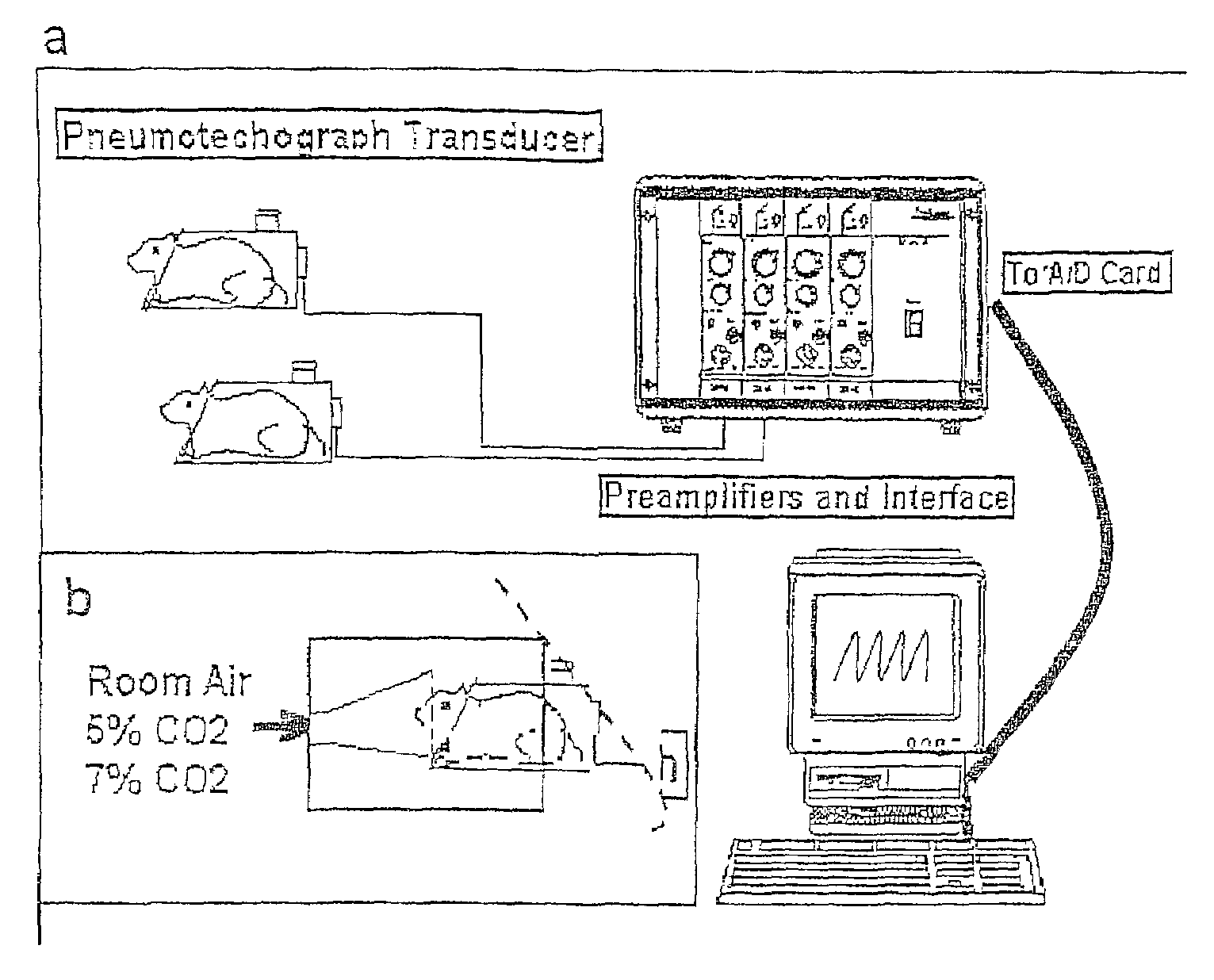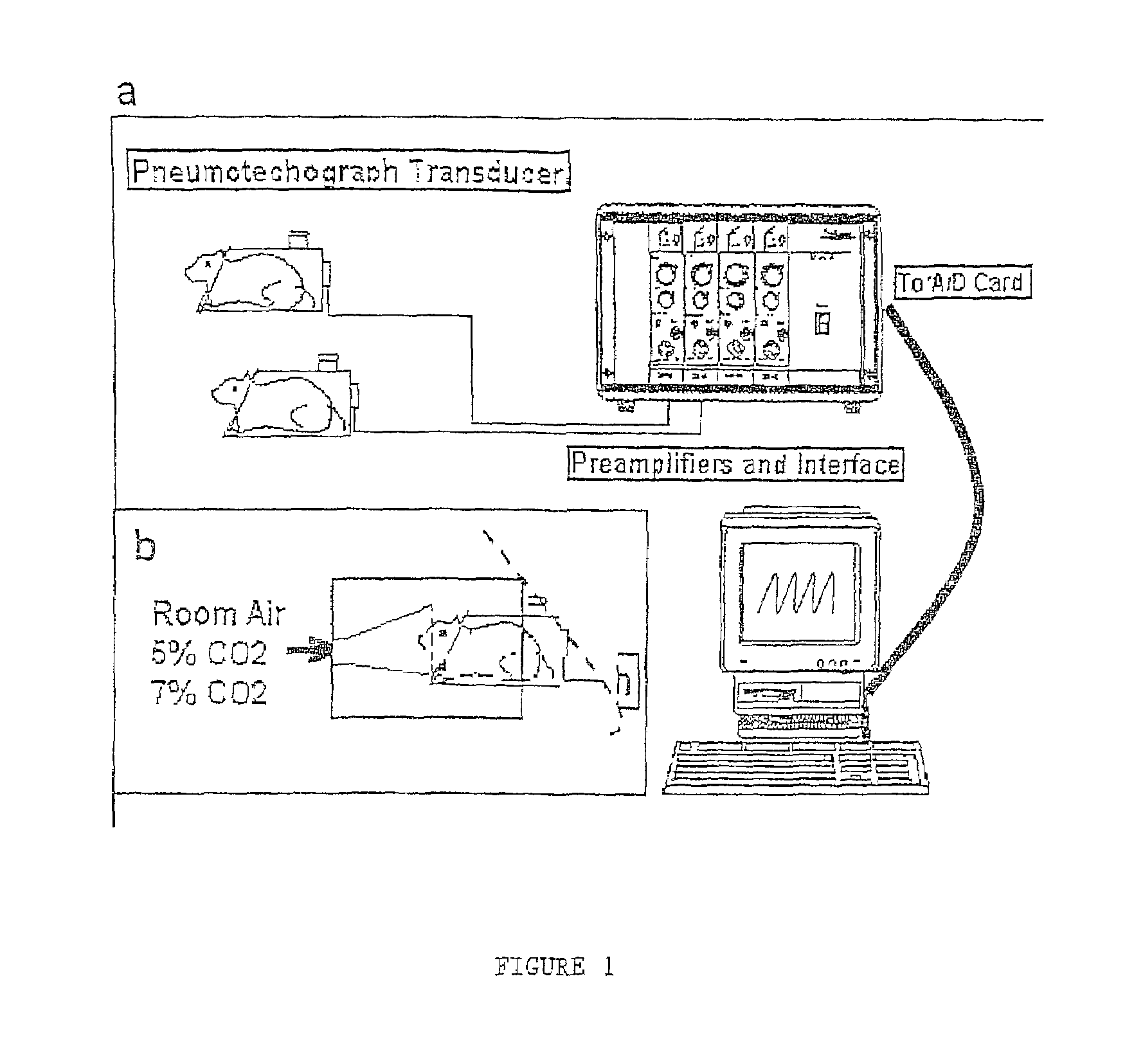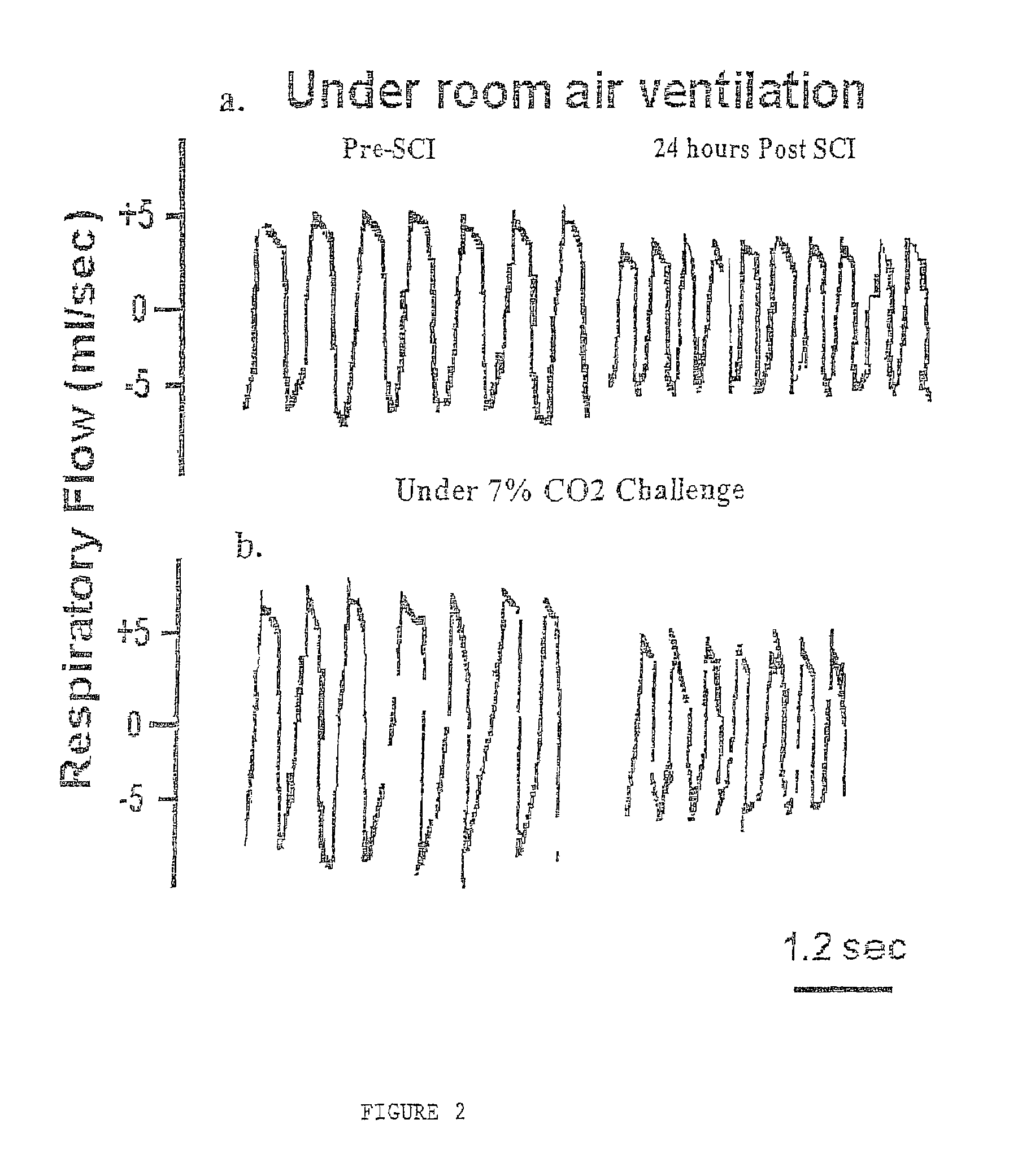Method for improving respiratory function and inhibiting muscular degeneration
a technology of respiratory function and muscle degeneration, applied in the direction of ammonia active ingredients, biocide, heterocyclic compound active ingredients, etc., can solve the problems of respiratory failure, respiratory function and respiratory system abnormalities, and deficits in somatomotor function and speech, so as to improve respiratory function, improve respiratory function, and inhibit muscular degeneration
- Summary
- Abstract
- Description
- Claims
- Application Information
AI Technical Summary
Benefits of technology
Problems solved by technology
Method used
Image
Examples
example 1
Treatment with the Serotonin 1A Receptor (5HT1A) Agonist 8-OH-DPAT Improves Respiratory Function in Spinal Cord Injured Rats
[0039]Respiratory function was evaluated when rats were breathing room air for the data baseline respiration. In addition, rats were challenged with air mixtures containing 7% CO2, as described in Methods. This was done to determine the effect of SCI on the central chemoreceptor-mediated respiratory responses to high concentration of CO2.
[0040]Twenty-four hours after we examined respiratory function in rats prior to injury to establish normal parameters, rats were subjected to SCI. At 24 hours p.i. and 7 days p.i., all SCI rats were tested behaviorally for their hindlimb reflexes and coordinated use of hindlimbs, including a detailed examination of open field locomotion (Gale et al., 1985; Basso et al., 1995; Wrathall et al., 1994; Teng and Wrathall, 1997). We found that behavioral deficits proper to this degree of SCI as well as post-injury time points (i.e. a...
example 2
Time-Course Study of the Effects of 8-OH-DPAT on Minute Ventilation (Ve)
[0044]Considering the relative short systematic half life of 8-OH-DPAT in rats (T1 / 2:˜50 minutes; Kleven and Koek, 1998), we decided to conduct a time-course study to determine if the respiratory effects of 8-OH-DPAT was time-related and thus, a dose-dependent event. At 24 hours p.i., the enhancing effect of 8-OH-DPAT on ventilatory response to 7% CO2 challenge decreased in a time-dependent manner, with the values recorded at 5 hours after the drug injection being slightly and not significantly higher than those collected at 24 hours p.i. and before 8-OH-DPAT treatment (FIG. 3). Therefore, a single dose treatment of 8-OH-DPAT normalized ventilatory response to breathing 7% CO2 for more than 2 hours after the drug administration (FIG. 3). Interestingly, although 8-OH-DPAT treatment also showed a time-dependent improvement of baseline Ve (i.e. under room air breathing), however, the effect was significant for only...
example 3
Effects of 8-OH-DPAT on the Respiratory Function of Normal Rats
[0045]Normal rats without SCI demonstrated highly consistent respiratory parameters under baseline conditions and 7% CO2 challenge relative to data collected at 24 hours pre-injury in the above SCI studies (compare Table 2 to Table 1) as well as to those reported earlier by our group (Teng et al., 1998a and 1999). Saline VEH injection (0.5 ml / per rat, i.p.) did not change respiratory parameters either in baseline conditions or under 7% CO2 breathing compared to those obtained before VEH treatment (Table 2). In contrast, treatment of 8-OH-DPAT quickly and significantly enhanced respiratory function (Table 2). However, 8-OH-DPAT treatment only increased baseline Vt for 4 minutes in normal rats before it dropped back to previous levels (Table 2). On the other hand, the stimulating effect of 8-OH-DPAT on f lasted till the last minute of the observation (i.e. 23 minutes post drug administration) and with a strong potency (Tab...
PUM
| Property | Measurement | Unit |
|---|---|---|
| Current | aaaaa | aaaaa |
| Fraction | aaaaa | aaaaa |
| Fraction | aaaaa | aaaaa |
Abstract
Description
Claims
Application Information
 Login to View More
Login to View More - R&D
- Intellectual Property
- Life Sciences
- Materials
- Tech Scout
- Unparalleled Data Quality
- Higher Quality Content
- 60% Fewer Hallucinations
Browse by: Latest US Patents, China's latest patents, Technical Efficacy Thesaurus, Application Domain, Technology Topic, Popular Technical Reports.
© 2025 PatSnap. All rights reserved.Legal|Privacy policy|Modern Slavery Act Transparency Statement|Sitemap|About US| Contact US: help@patsnap.com



